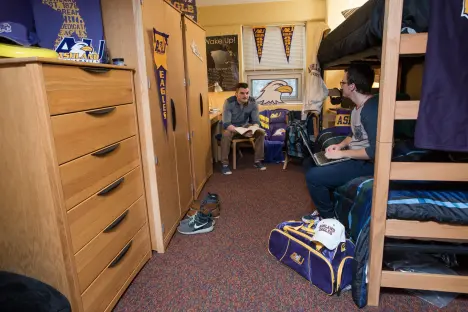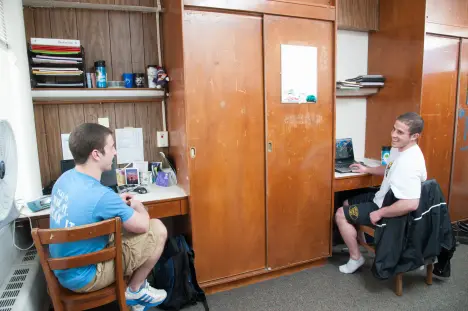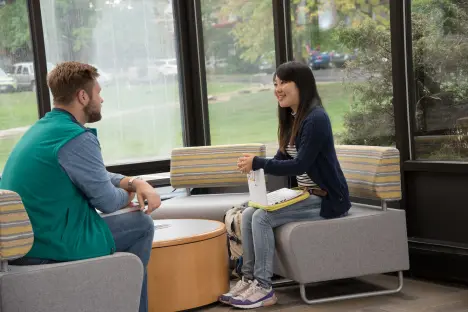
This is where you’ll learn how to apply for housing, request a roommate and/or special accommodations for yourself, join a living-learning community and get along with the roommate you were assigned or selected. You’ll also find links to great resources such as the Housing Guide; detailed information about housing rates, amenities and services; and answers to FAQs.

How to Apply for Housing
Once you have paid your $300 enrollment deposit, you will be able to complete Part II of your enrollment forms, which includes your housing application. Log in to your admission application and select “Undergraduate Part II Application.” You may also complete a housing application by going to housing.ashland.edu and logging in with your Ashland username and password.

Convenient Resources
2025-2026 Housing Guide
This guide will help guide you through the process of completing a housing application as well as searching for and selecting a roommate.
Important Dates
Don't miss important housing deadlines!
On-Campus Housing Agreements

Short PDFs on Specific Housing Topics
If you just want targeted advice on a specific housing issue, one of these PDFs may help:
Accessibility and Accommodations
We consider residential living to be an essential part of the student learning experience. Consequently, the staff of the Student Accessibility Center will evaluate accommodation requests necessary for you to access and enjoy the on-campus residential experience.
Ashland University will accept and consider requests for reasonable accommodation in university housing at any time. If the request for accommodation is made after the deadlines listed below, Ashland University cannot guarantee that it will be able to meet the individual’s accommodation needs during the first semester or term of occupancy. To ensure the best opportunity for priority consideration, students must submit the application and all requested documentation by the deadlines indicated below:
- New students and transfer students: Submit your Housing Accommodations Request Form at least 30 days before the start of the Fall or Spring semester, depending on when you plan to begin.
- Returning students: If you are interested in a housing accommodation or currently have an accommodation and want to maintain that accommodation next year, you must go through the renewal process. Submit your Housing Accommodations Request Form by January 31 to apply for housing accommodations for the following academic year. Accommodations need to be renewed every year; they do not roll over from year to year.
Contact Information
Housing Amenities and Services
The Office of Residence Life, along with our partners at the university, offers a number of amenities and services to residential students.
Amenities
Services
Residence Life FAQs
Have questions about residence life at AU? Here are some of the most commonly asked questions — and answers — about housing and moving in!
Preventing and Resolving Conflicts with Roommates
Many of the ways people prevent conflicts are also the means for resolving them. For example, if you talk about issues openly, without laying blame and you listen well, you’ll prevent many conflicts — and be better able to resolve those conflicts that do arise. So, to live harmoniously with your roommate, review and keep in mind the following tips.

